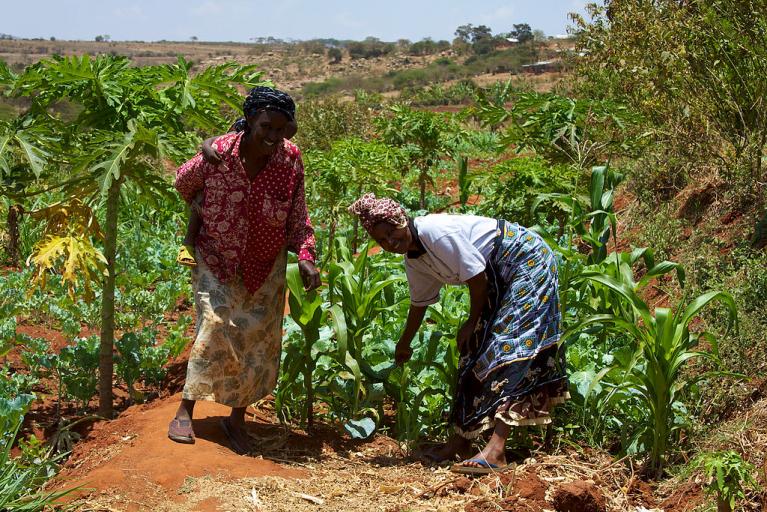Latest Resources

3 March 2025
On-going assaults on our food system and peoples’ health
Legal loopholes to allow continued use of highly hazardous pesticides, GM crops On the 27th of February, the ACB submitted substantive objections to the South African government’s attempt to backtrack on its commitments to phase out highly hazardous pesticides (HHPs), including glufosinate ammonium (GLA), by way of spurious and potentially unlawful “derogation” regulations. The rise […]

22 October 2024
Resistance against “bogus” drought tolerant (DT) maize in South Africa: a snapshot of two decades...
UPDATE: After nine years of arduous litigation by the ACB, a full bench of the Supreme Court of Appeal on 22 October 2024 set aside several layers of decision-making regarding the approval of the application by Monsanto, now Bayer, for commercial release of its drought-tolerant genetically modified maize, MON87460. 28 June 2023 UPDATE: In 2023, […]

25 July 2022
The battle over regulation of new breeding techniques in South Africa
– A blog by ACB Director Mariam Mayet Snapshot In October 2021, the South African (SA) government determined that the regulatory and risk assessment framework that exists for genetically modified organisms (GMOs) will also apply to new breeding techniques (NBTs), which make up a host of new genetic engineering technologies. This decision appears to follow […]

21 July 2020
Reflections midway through 2020: The need for solidarity and global rules for rooted change
ACB’s Executive Director Mariam Mayet looks back at the first half of the year We are mired in a world shattering pandemic of unprecedented magnitude and virulence. The architecture of global economic, environmental, human rights and political governance institutions and rules established in the 20th century are in the process of atrophying. The crisis is […]

9 July 2020
COVID-19: Food distribution and health support to informal settlements
Click here to read about the Ivory Park #COVID-19 Campaign relief initiative The Ubuntu Project COVID-19 SA lockdown regulations put strain on the livelihoods of vulnerable communities, and loss of income meant many people were unable to buy food. In the early stage of level 5 lockdown, families and small-scale farmers were cut off from […]

8 May 2020
Towards a democratised and recalibrated food system in South Africa
ACB’S Stephen Greenberg’s op-ed urging for a shift to localisation and agroecology The Covid-19 crisis has exposed the stark inequalities that persist in our society. Vast disparities in access to health care, food, shelter, personal safety, water, transport and communications have been laid bare. Aside from imposing a lockdown, the South African government has been […]

1 November 2018
Demystifying GM maize through collective action on World Food Day
In an effort to highlight the complex and concentrated South African agricultural and food system, with its unsustainable and deepening inequality, the African Centre for Biodiversity (ACB) and partner organisations initiated a “no GMO-maize campaign” earlier in 2018. This was followed up in August 2018, with a meeting of organisations that included Zingisa, Ntinga Ntaba […]

30 October 2018
Reflections on ITPGRFA, UPOV 1991 and South Africa
Recently the Department of Agriculture, Forestry and Fisheries (DAFF) held national consultations on whether South Africa should accede to two international agreements related to seed: The International Treaty on Plant Genetic Resources for Food and Agriculture (ITPGRFA, or the Treaty) and the International Convention on the Protection of New Varieties of Plants (UPOV) 1991. The […]

16 July 2018
Marginalised worldviews hold the key to climate change adaption: Reflections from the Internation...
June 2018 In the climate change arena there are two main streams of work – mitigation, which are measures we need to take to stop emissions and halt climate change, and adaptation – the varied practices we are taking and can take to adapt to living with the new conditions that climate change brings. Adaptation […]

14 June 2018
Restrict, regulate and reduce corporate power in South Africa’s food system
I attended a dialogue on corporate ownership in South Africa in May, in Tshwane, hosted by Trade and Industrial Policy Strategies (TIPS). There was strong government representation at the dialogue, including from Treasury; Trade and Industry; Minerals and Energy; and Planning, Monitoring and Evaluation. Someone from the EU was also there. Corporate concentration is a […]
